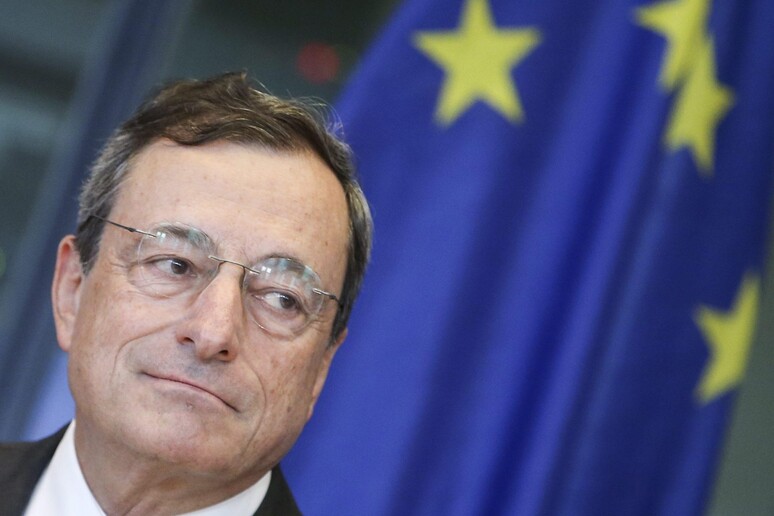European Central Bank President Mario Draghi said Thursday that heightened geopolitical tensions and insufficient government reforms could hurt business and consumer confidence.
He said that so far, the eurozone hasn't been hurt by sanctions imposed on Russia over its role in the Ukraine conflict.
That could change, added Draghi.
He also repeated his warning that economic growth in the eurozone appears to have "lost momentum recently," during an interview published by a newspaper in Lithuania.
Draghi was there for a meeting of central bankers.
On Wednesday, Draghi said that the ECB saw no risk of recession across the eurozone although it remains "fragile". Draghi said that he sees no risk of recession or deflation across the eurozone economies, but slow growth means that inflation will remain muted for an extended period.
"The eurozone is not in recession but recovery is modest, weak and fragile," he said in an interview with Europe 1 radio.
Italy, the eurozone's third-largest economy, is in recession and in August reported deflation as the consumer price index slipped into negative territory.
At that time, Draghi also repeated his call for structural reforms by government, saying that monetary policy can help to encourage economic growth by injecting cash - but that alone is not enough.
Rigid bureaucracies, high taxes, and red tape that ties up businesses strangle growth and discourage the new investment essential for economic expansion, said Draghi.
ALL RIGHTS RESERVED © Copyright ANSA











